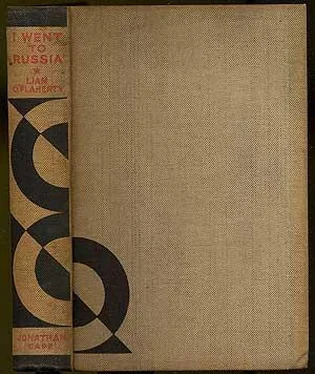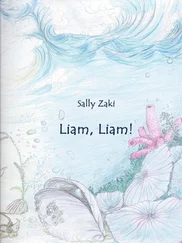‘Ho! Ho!’ I said to myself. I’m beginning to see where I am.’
When we got out of the office, my friend Levit said to me:
‘The situation is such. This organisation is somewhat bourgeois. But it is also necessary. It deals with bourgeois people. Therefore bourgeois types must be found to deal with these bourgeois people. But it is all to the same end. For the world revolution.’
I felt depressed, in spite of his explanation. I hated that man at the Society’s office. He looked so cunning and insincere.
‘So it must go on and on like this,’ I thought, ‘to the end of the world, all this plotting by mean people, in Soviet Russia as well as in England and France and Germany and America, all that filthy plotting that drove my generation into the shambles of the World War. How horrible! That dream of liberation from the nightmare of plotting and intrigue which was inherent in the Russian Revolution seems to have vanished like all dreams, and there is left only individuals like this man, with sly ways, exactly like the individuals who plotted the World War. Fellows like him will plot and plan for another war and it’s going to go on for ever like that.’
The beauty of the morning, when I saw the masses of workers building and singing as they built, with their triumphant little red flags fluttering now vanished. For I saw it would only lead in one direction. When they had built their houses and their roads, sly fellows like this office hack would send them out to the shambles of war; for sly fellows like this office hack live on war. Christ! What stupidity, all this spying and plotting! It makes one want to spew out one’s human soul and revert to the clean savagery of the forest beast of prey; an animal that springs boldly upon his prey and sleeps when sated. But they are never satisfied, these little plotting adders and even when glutted they love to sting.
Even the giant officers whom I had seen, spurred and with swords at their hips, marching proudly, lordly beings, into the Kremlin fortress, also lost their beauty. They were but pawns to be used by these little plotters. Their beautiful human bodies would grow black and verminous in death upon some battlefield, as I have seen fine men like them lie black upon the shell-holed fields of France. And the little fellows would still be crouching over their desks, plotting.
Plotting for what? The object of their plotting does not affect the result, which is war, horrible and loathsome war that devours beauty. And if it were a war really to end war, perhaps the sacrifice would be worth making; perhaps mankind would be justified in staining its soul with this final sin. War is like an accession of lust, which satisfaction but accentuates.
But the inexhaustible enthusiasm of my scholarly friend Levit soon dispelled my gloom, and as I hastened along by his side he cheered me by an oration, which might well have been made by one of the cakemakers of Lerne.
‘Comrade,’ he said, ‘the situation is such. The whole of the Soviet Union is at this present time an armed camp. That must be understood. We are at war, although war is not yet declared. And all these societies and organisations are therefore necessary. Night and day we are being attacked by the plotters and spies of the bourgeoisie. They hire men to burn our factories and to destroy our railways and to disorganise our food supplies. So we all have to watch. On our frontiers there is Poland and Roumania hired to jump on us when the proper moment comes. But we are ready. We are all ready to fight.’
He halted in the street, turned towards me and put his two hands on his slender breast.
‘Look at me,’ he cried. I am not such a man, a big fellow with a fierce nature. I love books, so to speak. But I also shall take a gun in my hands and stab these fellows who come to attack us. Oh! Yes. I shall stab them like a Siberian or a Tatar that cannot read or write.’
A few yards farther on, he saw a little bookstall on the pavement and immediately forgot the war for liberating the world proletariat. He pounced on the books, uttering excited cries and at last found something, a novel by an obscure French writer of the early nineteenth century. He haggled fiercely with the seller and finally bought the book for a few kopecks. Then he began to tell me about the author and about early nineteenth century French literature in general.
I have many such obscure books in my possession,’ he explained as we entered by a large gate into the courtyard of the police office. I hope to write a thesis some time on this question, the effect of the Napoleonic wars on the French novel in the early nineteenth century.’
An amazing sight, the office where I had to register. In an enormous room, there was a crowd of people, representative of one hundred or more Eastern peoples, all babbling excitedly. There were even Esquimos, as far as I could gather. There were certainly Chinese, Japanese, Kurds, Afghans, Hindoos, Pathans, Tibetans, Tatars, Gipsies, Turks, Persians, Siberians and scores of other species unknown to me. Hardly any two people were dressed alike. The disorder was terrible, as the people could not read or write for the most part and crowds of guides and interpreters kept running to and fro with forms, shouting into the ears and mouths of the illiterates, who also seemed to be as foolish as they were illiterate. My friend managed somehow or other to get hold of a clerk, who got my business done. Had I waited my turn I should still be there. We were fortunate to get away after three hours.
‘Now,’ said my friend, when we got into the street, ‘what shall we do?’
‘We shall eat,’ I said at once. ‘And I want to go into one of the restaurants used by the workers.’
‘Very well/ he said. ‘But perhaps we shall not find one at this hour with food.’
We did find a restaurant that had food. As the mid-day rush was over we had plenty of room. We got served quickly. The food was bad but it was very cheap. I have no idea what it was. It might have been meat or fish. The most interesting part of the meal was an incident that occurred, just before we were going to leave.
In Moscow there are hordes of beautiful little gypsy girls, the most exquisite little creatures I have ever seen. They dance in the public squares and sleep on the grass plots and beg everywhere. They are always accompanied by ruffianly fathers or mothers, who probably take all their money and beat them. But they are really very beautiful, with features as delicate as flowers and little hands that are enchanting. All as brown as berries, with extraordinary eyes that look so wicked.
One of these little women entered the restaurant, came to our table and begged for money or food; I could not tell which. I put my hand in my pocket at once to give her some money; not because I pity beggars, but because she was beautiful. But my friend tried to stop me in an excited manner. In spite of that, I gave the little girl a few roubles. My friend got really horrified.
It is a crime,’ he cried. It is a counter-revolutionary act.’
‘Oh! Damn the revolution,’ I cried. ‘What harm will it do?’
He shook his head and said:
‘You are really hopeless. You are an anarchist. It is impossible to organise properly your psychology.’
The little person returned and began again to beg for something. Then she pointed to a mess of potatoes that lay on a plate. I was on the point of handing her the plate and asking her to sit down to table with us, when my friend jumped to his feet in a fury and threatened to call the police if the gypsy did not leave at once. As soon as she heard the word ‘Militia’ she fled, but at the door she turned back and said something. I’m certain it was an oath. Then she winked at me and blew me a kiss. I returned it with enthusiasm and I wanted to rush out after her; she was so perfect and tiny, like a little fairy animal. But my friend began to strike the table and then, seizing me by the shoulder, said furiously:
Читать дальше












